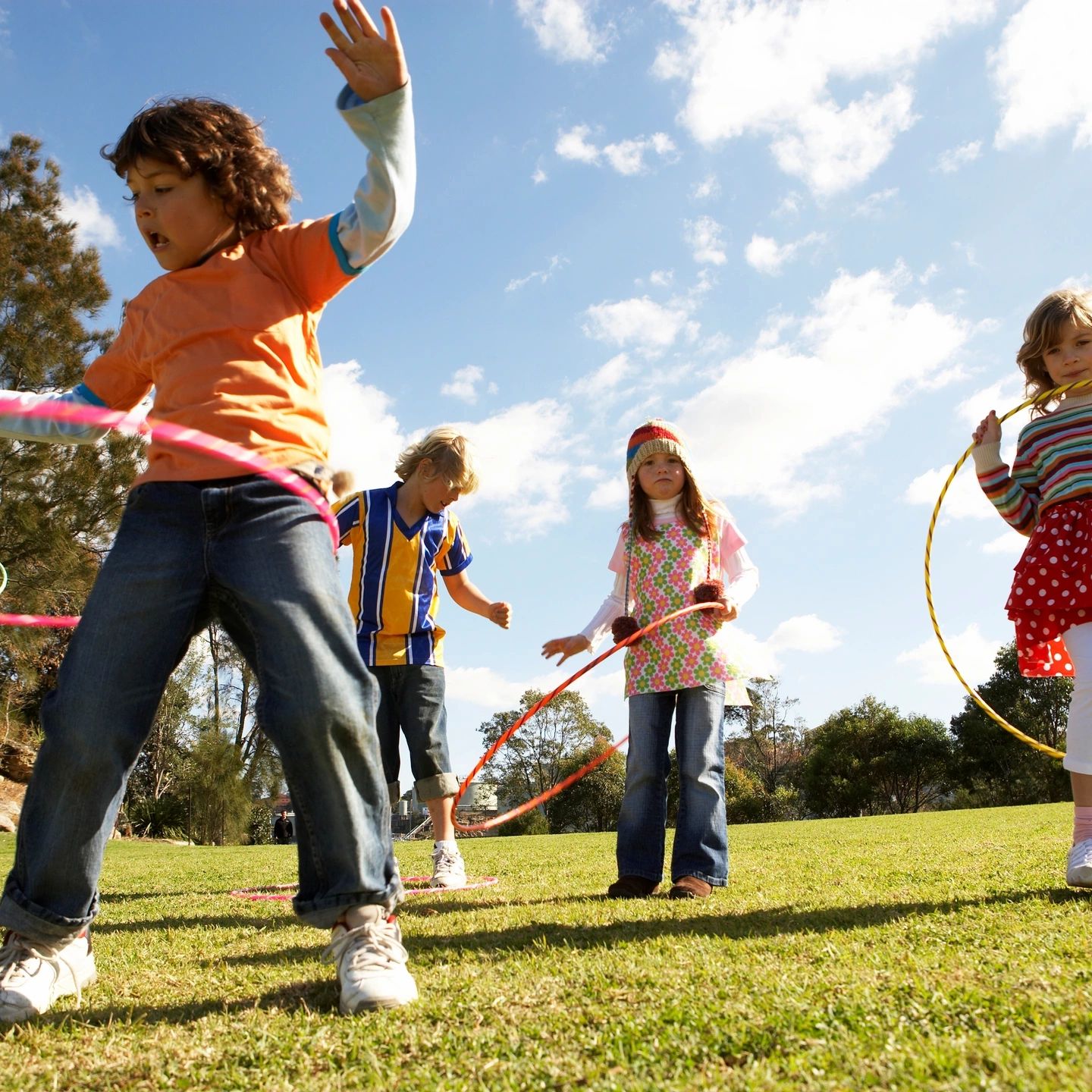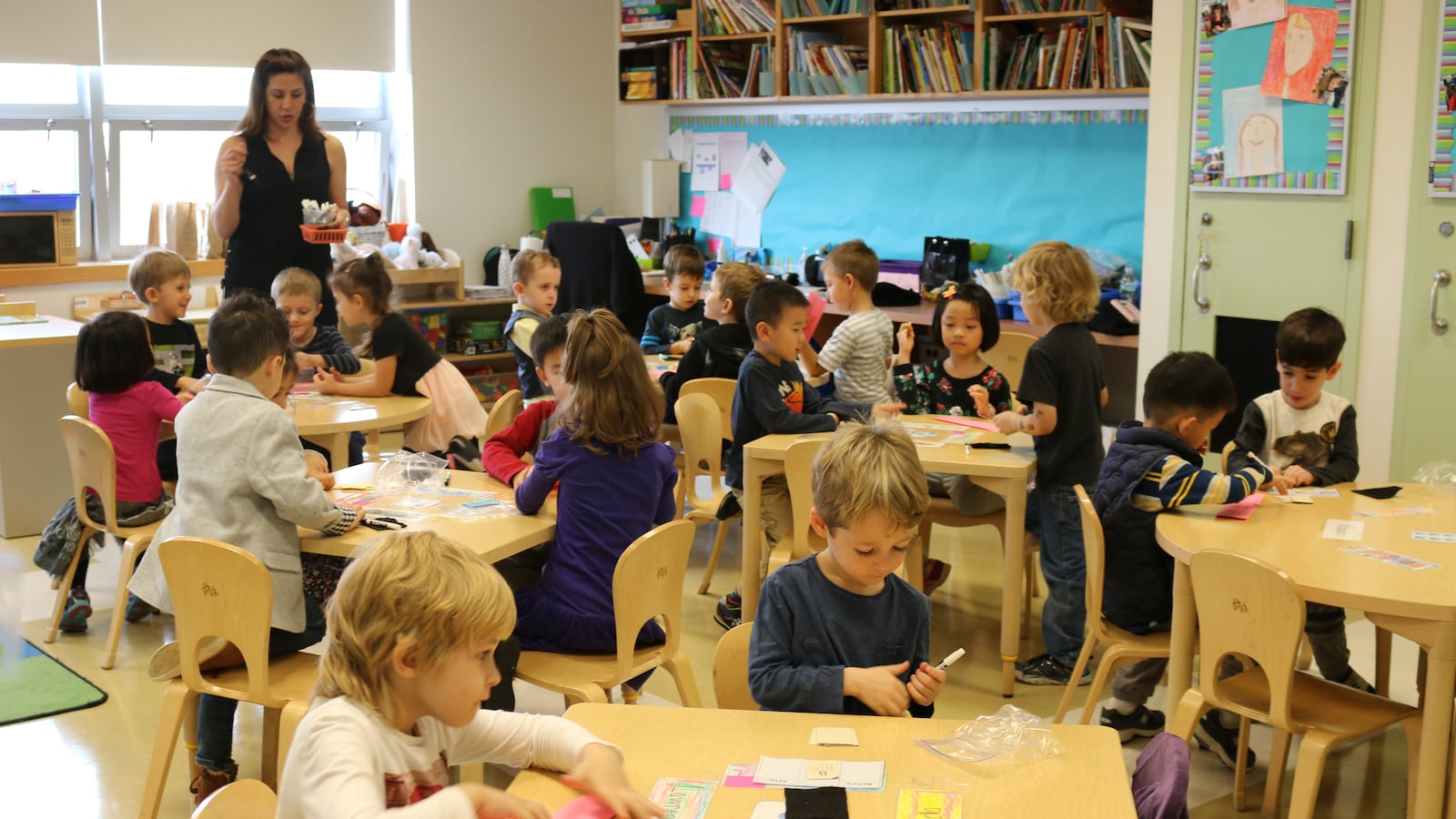Explore how engaging programs inspire young learners at Private Grade School Peoria
The Relevance of Interactive Activities in Elementary School Education And Learning
Interactive tasks play an essential role in elementary school education and learning. They involve students and improve finding out results. With team jobs and hands-on experiments, pupils experience the product in a useful means. This method accommodates diverse knowing styles and advertises important skills. The advantages prolong beyond academics. Exploring the deeper influence of these activities exposes their significance in shaping young learners' futures. What makeovers occur when trainees proactively get involved?
Enhancing Engagement Via Interactive Knowing
Typical mentor approaches have their qualities, interactive learning significantly boosts student interaction in grade institution education and learning. This technique encourages active involvement, allowing pupils to submerse themselves in the learning procedure. By making use of group activities, hands-on experiments, and technology-driven resources, educators create an atmosphere where students really feel a lot more linked to the material.
Interactive understanding assists in partnership amongst peers, fostering interaction skills and synergy. It additionally deals with varied discovering designs, making certain that visual, auditory, and kinesthetic students can all thrive. Pupils are a lot more likely to maintain information when they proactively take part, as opposed to passively obtaining knowledge.
This vibrant method not just makes learning pleasurable but also imparts a feeling of ownership in pupils regarding their academic trip. As they engage with the material, their inquisitiveness and inspiration to learn rise, laying a solid structure for future scholastic success.
Developing Vital Assuming Abilities
Interactive learning not only boosts engagement but also works as a stimulant for establishing important assuming skills in elementary school trainees. Through activities such as problem-based discovering, arguments, and hands-on experiments, students are encouraged to evaluate details, review various point of views, and formulate reasoned final thoughts. These interactive experiences call for trainees to doubt assumptions, leading them to think more deeply regarding different subjects.

Interactive activities commonly existing real-world scenarios that challenge pupils to apply their expertise artistically. By steering via these obstacles, they find out to determine appropriate info and make educated choices. This procedure cultivates not just private crucial thinking but also motivates trainees to articulate their assumed processes, improving their ability to connect successfully. As an outcome, interactive discovering atmospheres cultivate a generation of essential thinkers who are better prepared to deal with complex problems in their future scholastic and specialist endeavors.
Promoting Collaboration Among Peers
Cultivating partnership among peers is important in grade institution education and learning, as it improves teamwork and communication abilities. Taking part in team activities assists students develop trust and regard for each other, laying the foundation for effective cooperation. Analytical with each other enables pupils to find out from each various other and establish a cumulative method to challenges.
Team Effort and Interaction Abilities
Efficient team effort and communication abilities are important parts of a successful elementary school education and learning. Taking part in interactive tasks encourages pupils to team up, share ideas, and address problems together. Such experiences promote the advancement of essential communication capacities, enabling youngsters to express their ideas plainly and pay attention actively to others. With synergy, trainees find out to value varied perspectives, cultivating a sense of neighborhood and shared obligation. Structured team jobs, whether in academics or imaginative projects, enhance peer interactions, teaching youngsters just how to negotiate roles and solve conflicts. These abilities not only contribute to a favorable class setting yet additionally prepare trainees for future collective ventures in higher education and learning and the office. Generally, team effort and communication are foundational to all natural development in quality college.
Building Trust and Respect
Building count on and respect amongst peers works as a keystone for effective cooperation in elementary school environments. When trainees feel valued and respected by their schoolmates, they are much more likely to engage proactively in team activities. Interactive tasks, such as group tasks and cooperative games, supply chances for students to find out from one another, cultivating a sense of area. This environment urges open communication, permitting trainees to express their concepts and viewpoints without fear of judgment. As trust constructs, pupils end up being more ready to share responsibilities and sustain each other's understanding. Inevitably, growing an environment of trust and respect boosts not only academic results yet additionally social advancement, furnishing students with necessary interpersonal abilities for their future ventures.
Problem-Solving With each other
Collective analytic involves trainees in essential thinking and team effort, essential skills for their personal and scholastic development. When students collaborate to take on difficulties, they learn to interact properly, regard diverse viewpoints, and leverage each various other's strengths. This process improves their capability to assess problems from numerous angles and develop innovative remedies. Group activities, such as science experiments or mathematics obstacles, promote active participation and cultivate a feeling of community. As students work together, they also build social skills, learning to discuss and endanger, which are crucial for future interactions. Inevitably, analytic with each other grows a helpful understanding setting, encouraging trainees to take possession of their education while preparing them for collaborative endeavors beyond the classroom.
Motivating Creativity and Innovation
Encouraging imagination and development in grade school education can be greatly improved through hands-on understanding experiences. These activities enable trainees to involve directly with products and principles, fostering imaginative reasoning. In addition, collective team projects can boost varied ideas and remedies, even more supporting an imaginative environment.
Hands-On Knowing Knowledge
A wide range of hands-on discovering experiences considerably enhances imagination and development in grade college education. Engaging students in sensible activities allows them to apply theoretical expertise in real-world contexts, fostering find out this here much deeper understanding. By manipulating devices and products, kids create vital problem-solving skills and find out to believe outside package. These experiences inspire inquisitiveness and motivate pupils to explore their interests additionally. Additionally, hands-on tasks can link different subjects, linking scientific research, art, and mathematics in significant ways. This interdisciplinary technique urges students to see links and think creatively. Eventually, hands-on learning experiences nurture a generation of pioneers, equipping them with the skills and confidence needed to take on future challenges and add to culture in unique methods.
Collaborative Group Projects
Hands-on discovering experiences naturally cause the incorporation of collective team tasks, which play a crucial duty in cultivating imagination and technology in elementary school education. These jobs urge students to collaborate, sharing ideas and point of views, which enhances analytical abilities and critical thinking. Through cooperation, pupils find out to communicate effectively and respect diverse viewpoints, important skills for their future. In addition, team jobs supply chances for trainees to trying out various duties, boosting their adaptability and confidence. Engaging in this cooperative setting enables them to explore their creativity, pressing the boundaries of standard understanding. Inevitably, collective group tasks not only enrich the instructional experience but also prepare pupils for real-world challenges that require team effort and innovative reasoning.
Building Self-confidence and Freedom
As trainees engage in interactive tasks, they often uncover possibilities to build self-confidence and independence. These tasks, whether they include hands-on projects, role-playing, or analytical jobs, motivate students to take initiative and express their ideas honestly. By joining such experiences, trainees learn to trust their discover this info here capabilities and choose without counting entirely on assistance from educators or peers.
Interactive activities cultivate a feeling of ownership over learning. When students take on challenges collaboratively or individually, they establish vital assuming skills and durability. This process not just boosts their understanding of the subject but also encourages them to take risks in their understanding trip.
As they navigate different interactive circumstances, pupils progressively lost their insecurity, paving the method for raised self-confidence - Private School. Eventually, these tasks play an essential duty in supporting confident and independent learners, outfitted to encounter future scholastic and personal obstacles
Developing a Positive Classroom Atmosphere
While promoting a favorable classroom atmosphere is essential for reliable understanding, it calls for intentional effort from teachers to develop a space where students feel risk-free, reputable, and involved. A positive ambience motivates cooperation, enabling students to express themselves without worry of judgment.
Educators can accomplish this by establishing clear assumptions, advertising common regard, and acknowledging individual payments. Integrating interactive activities better boosts interaction, making discovering a lot more vibrant and pleasurable.
In addition, a caring environment sustains social-emotional advancement, as pupils learn to browse connections and solve problems. Educators play an important role in modeling favorable habits and strengthening a culture of kindness and inclusivity.
Often Asked Inquiries

How Can Moms And Dads Support Interactive Discovering in your home?
Parents can sustain interactive knowing at home by providing interesting products, motivating hands-on jobs, including academic games, cultivating conversations, and developing a nurturing atmosphere that advertises curiosity and expedition in their children's finding out experiences. (Kindergarten)
What Sorts Of Interactive Tasks Are A Lot Of Effective?
Hands-on jobs, collective video games, role-playing circumstances, and academic technology applications are amongst the most reliable interactive activities. These engage pupils, enhance crucial assuming skills, and advertise teamwork, eventually fostering a much deeper understanding of numerous subjects.
Exactly How Do Interactive Tasks Cater to Various Discovering Styles?
Interactive activities involve aesthetic, auditory, and kinesthetic students by integrating varied methods. These tasks promote recognizing through hands-on experiences, collective conversations, and aesthetic aids, enabling pupils to absorb info according to their preferred learning design.
What Are the Expenses Connected With Carrying Out Interactive Activities?

Applying interactive tasks incurs costs such as products, training for teachers, modern technology upgrades, and potential facility this post alterations. Budget restrictions can likewise influence the frequency and selection of tasks offered to trainees in instructional setups.
Just How Can Educators Examine the Effect of Interactive Understanding?
Educators can assess the effect of interactive learning through observations, trainee responses, efficiency metrics, and comparative evaluation of test scores before and after implementation, making certain a complete understanding of involvement and understanding retention improvements.
Via activities such as problem-based knowing, disputes, and hands-on experiments, trainees are urged to evaluate information, assess different perspectives, and formulate reasoned final thoughts. Interactive activities typically present real-world scenarios that test pupils to use their understanding artistically. Engaging in interactive activities urges students to collaborate, share concepts, and address problems with each other. Interactive activities, such as group projects and cooperative video games, supply chances for pupils to learn from one an additional, cultivating a sense of community. As students involve in interactive activities, they often find chances to develop confidence and independence.